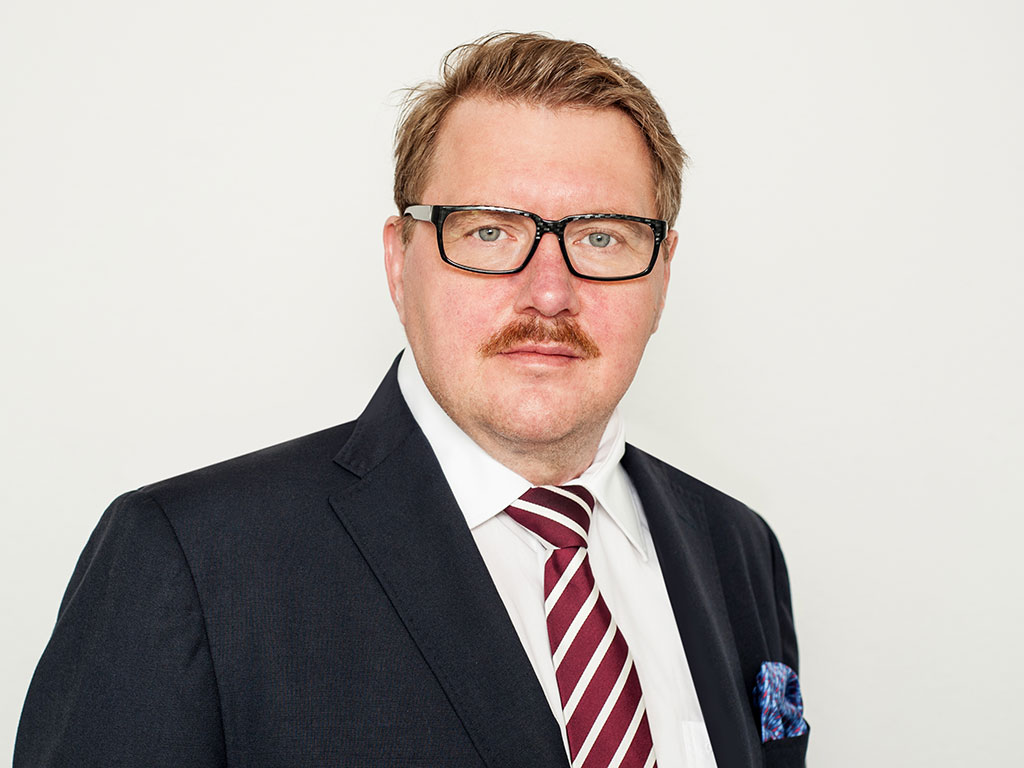
For some time, Berlin was avoided as a property investment destination. Yet once Germany’s economic development began to boom, interest from both domestic and foreign property investors began to increase rapidly. Even during the difficult climate of the financial crisis, interest continued to grow as a result of Germany’s low interest rates, causing more owner occupiers to look for a place to live and more foreign investors to look for a safe place to invest. This led to today’s demand for good properties in Berlin being far greater than what is actually available on the market. European CEO had the opportunity to speak with Carsten Heinrich, the Managing Director of Rubina Real Estate, about the market’s rapid growth and what can be expected in the coming years.
Carsten Heinrich CV
BORN
1962, Germany
EDUCATION
Economics, Berlin School of Economics
EXPERIENCE
1989: Management Trainee at Berliner Bank AG
1991: Established and managed Berliner Bank AG’s Real Estate Subsidiary
2001: Managing Director at Skanska Haus GmbH, German subsidiary of the largest property developer in Europe at the time
2002: Head of the Real Estate Centre at Berliner Volksbank eG, expertise in holiday properties and real estate investments
2007: Director at ICON Investmentconsulting GmbH
2011: Managing Director at Rubina Real Estate GmbH, Berlin’s top residential property investment consultancy for foreign investors with expertise in smart home, business apartments and residential high-rise buildings
2015: Managing Director at EichenGlobal GmbH, Germany’s premier luxury property management service
Rubina Real Estate in numbers:
2011
Founded
12
The number of languages it provides its services in
85%
Of its sales go to international investors
214
Worldwide partners
Over €550 million
Transaction volume
Can you tell us about the particularities of Berlin’s real estate market and its development over the past half century?
The Berlin real estate market has been formed through two main historic events. The first was the end of World War II and the redevelopment of a city that was divided into two entities: east and west, which meant that all institutions, infrastructure facilities etc., had to be built twice. The second was the reunification and development of Berlin into one city. An extra boost was given because of Berlin’s status as the capital of Germany, and that it had lots more space available for construction compared to other European capitals, including the area of the former Berlin wall.
What are the major challenges for Berlin’s real estate agents?
Due to growing demand, competition has increased to the point where it is very difficult to find properties to sell. Also, the rapid increase in prices has made Berlin one of the most attractive property investment destinations in Europe. Another challenge to overcome is the shift in buyer profiles from German owner-occupiers to international investors, particularly those from emerging markets, such as China and the Middle East. However, not many companies have the necessary experience and cultural know-how to successfully navigate this transition.
We understand that there is a greater number of apartment towers in the works. What can you tell us about this and other recent trends and developments?
Currently Berlin does not have any skyscrapers of the ‘new type’ that are being built around the world. High-rise towers, which combine commercial enterprises, is a new development market that Berlin cannot ignore and has just begun. So far, there are twelve high-rise buildings around the Alexanderplatz that are either under construction or in the planning stage.
Are business apartments becoming increasingly popular would you say?
Berlin, as Germany’s capital city and Europe’s strongest start-up hub, is seeing an immense growth of not only business apartments, but also temporary living in general. This is not only a trend in Berlin, but one of the future.
How has the emergence of the ‘smart home’ impacted your business, if at all?
We believe that within the next five years the change in the real estate industry will be enormous, which is why Rubina is currently working on different concepts to bring Property 4.0 forward. Because of easier access to data and larger amounts of available data, the process of purchasing property will become more transparent and thereby induce a shift in agencies’ responsibilities and services. We also expect a reduction in administrative and processing tasks and an increase in consulting and expertise services.
More generally, how has technology altered your business?
Although the real estate industry is generally a little slower to adopt new technologies, it has already been transformed. Just the use of the internet for reaching thousands of potential customers overseas is a big change compared with how customer acquisition was done as recently as five years ago. Many tasks that were time and cost intensive before can now be either largely or completely automated. A customer from Hong Kong can get a good impression of how their property in Berlin will look before the foundation has been laid, without them having to travel to Berlin. That said, the changes we have seen so far are just the tip of the iceberg compared to what we expect in the next decade.
What plans do you have for the future?
Our goal is to expand the range of services we offer to our customers to include the latest technological solutions on the market. We’re looking to offer complete and integrated solutions to problems, not fragmented services. Aside from being one of the first adopters and promoters of Property 4.0, we plan to enter new markets and integrate the global aspect of property investment.

